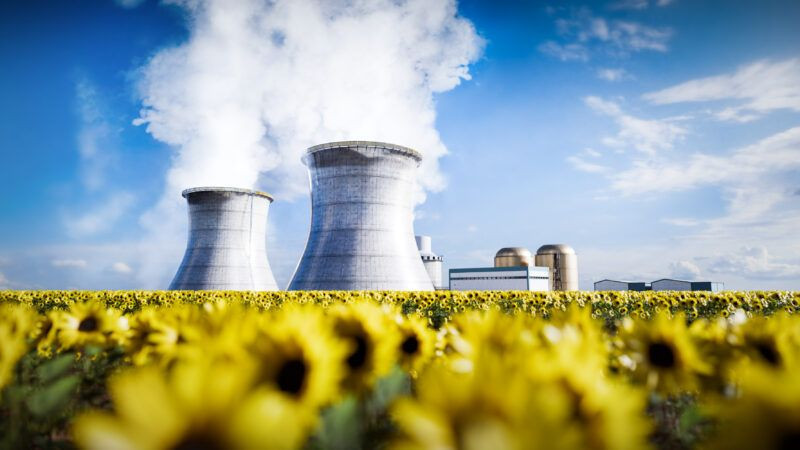
Discussing the draft Law on Electricity (amended), Tran Van Lam, a National Assembly deputy from Bac Giang, said the amendment opens up the opportunity for the government to carry out research and consider nuclear power projects as a solution to energy security.
“In other countries, nuclear power accounts for a large proportion, 30-40 percent, of the total electricity output,” he said. “In current conditions, it is necessary to reconsider the nuclear power development policy."
He requested the government to submit reports to the National Assembly and explain why Vietnam needs to resume the nuclear power development strategy.
The Ministry of Industry and Trade (MOIT), based on the eighth national power development plan (Plan 8), has resumed research and reported to the government about the demand for nuclear power.
Prior to that, in its report reviewing the implementation of the National Assembly’s Resolution No 31 on stopping investment in nuclear power projects in Ninh Thuan (2016-2021), released March 2, 2022, MOIT disagreed with the proposal on canceling the decisions related to the planning of the locations for Ninh Thuan 1 and 2 nuclear power plants.
The ministry emphasized that the cancelation was a serious move, which may cause consequences and affect relations between Vietnam and international partners that have committed to cooperate to develop nuclear power in Vietnam.
According to MOIT, developing nuclear power is a long process which needs thorough preparations for tens of years, including preparations in human resources, science and technology development, infrastructure, international cooperation and economic power.
Vietnam has won the IAEA’s (International Atomic Energy Agency) recognition on gaining important milestones to develop nuclear power, while the locations reserved for Ninh Thuan1 and 2 nuclear power plants are believed to be safe.
Therefore, the cancelation of the reservation for nuclear power in the two positions may cause high costs in researching, surveying and choosing new alternative locations in the future, when the country has sufficient factors to develop nuclear power, and nuclear power is considered an option to ensure the nation’s sustainable energy security.
Since the locations for Ninh Thuan1 and 2 are rare and precious which were found after Vietnam spent money on surveys, exploration and studies, they need to be preserved if Vietnam needs to use the locations in the future if it decides to develop nuclear power.
The two locations which can satisfy all requirements for nuclear power development are Phuoc Dinh and Vinh Hai in Ninh Thuan province.
The Ministry of Science and Technology (MST), in its report on reviewing implementation of Resolution 31, confirmed that Phuoc Dinh and Vinh Hai can satisfy the strict requirements set by IAEA to become locations for nuclear power plants. The plan to set up nuclear power plants in the locations also got support from local authorities and the public.
MST agreed that the two positions should be preserved for nuclear power projects in the future.
Regarding predictions on power demand and the necessity to develop nuclear power, MST’s report pointed out that energy security is always a matter of highest concern in all countries, and the power development planning must always be one step ahead.
Over the last few decades, Vietnam’s GDP growth rate has been very high compared with the region and the world. It has developed power generation sources with high growth rates (over 10 percent), which can lead to the depletion of traditional primary power sources, such as coal, gas and hydraulic power.
Since 2015, Vietnam, from a net energy exporter, has become a net energy importer. Vietnam has been trying to develop renewable sources, but the supply of this type of power is unstable as the operation of wind and solar power plants depends on weather conditions. This means that renewables can be an alternative source and cannot entirely replace thermal power, hydropower and nuclear power.
The large hydropower potential has been used up. To continue to develop thermal power, the volume of fossil fuel imports (coal, LNG) will be increasing, thereby affecting the national energy security assurance and have negative impact on the environment.
To cope with the problems, MST believes that Vietnam needs to consider nuclear power.
Luong Bang